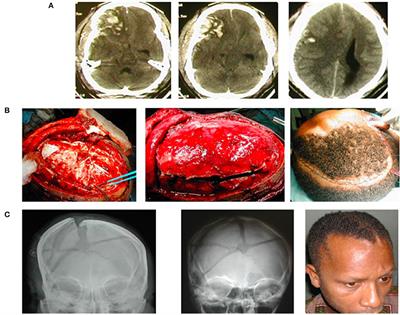REVIEW
Published on 29 Jan 2020
Cranioplasty Following Decompressive Craniectomy

doi 10.3389/fneur.2019.01357
- 30,073 views
- 77 citations
22k
Total downloads
140k
Total views and downloads
REVIEW
Published on 29 Jan 2020

MINI REVIEW
Published on 10 Oct 2019

MINI REVIEW
Published on 06 Sep 2019

MINI REVIEW
Published on 15 May 2019

MINI REVIEW
Published on 08 May 2019

ORIGINAL RESEARCH
Published on 12 Apr 2019

MINI REVIEW
Published on 26 Feb 2019
REVIEW
Published on 25 Jan 2019

ORIGINAL RESEARCH
Published on 15 Jan 2019

REVIEW
Published on 09 Jan 2019

REVIEW
Published on 20 Nov 2018
